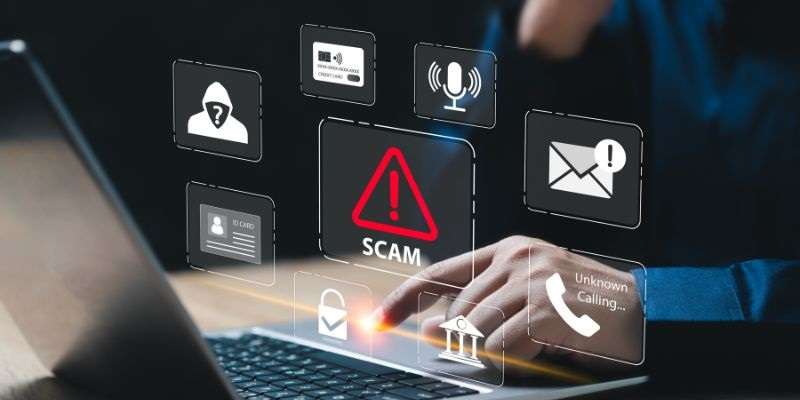BankIowa
Updated 8:02 AM CST, Tue December 10, 2024
Published Under: Fraud Prevention & Security

In today’s digital age, the threat of phishing and social engineering scams is more prevalent than ever. Social engineering uses deceptive tactics designed to trick consumers into revealing sensitive information such as passwords, financial information, and personal details which are then used for fraudulent purposes. Understanding how to identify these scams is crucial for protecting yourself and your data. Stay informed and safeguard your digital life by learning how to spot the red flags of online fraud.
Email Phishing
Phishing scams come in various forms, each designed to deceive you into divulging personal information. One common type is email phishing, where attackers send emails that appear to be from reputable sources, such as banks or online services. These emails often contain urgent messages, prompting you to click on a link or download an attachment. To spot these scams, look for:
- Generic greetings
- Poor grammar and spelling errors
- Suspicious links
- Email message arriving at unusual hours (ex. 2AM - 4AM)
- Suspicious sender addresses
Always verify the sender’s email address and avoid clicking on links or attachments in unsolicited emails.
Spear Phishing
Another prevalent type of phishing scam is spear phishing, which is more targeted and personalized than email phishing. With spear phishing, attackers gather information about you from social media or other sources to craft convincing messages that seem legitimate. The emails might address you by name and reference specific details about your life. To protect yourself, be cautious about sharing personal information online and always verify the authenticity of unexpected messages, even if they appear to come from someone you know.
Vishing and Smishing
Social engineering scams extend beyond email to include phone calls and text messages, known as vishing and smishing, respectively. In vishing, scammers call you pretending to be from a trusted organization, like your bank, and ask for sensitive information. Smishing involves text messages with similar deceptive tactics. To identify these scams, remember:
- Legitimate organizations will never ask for sensitive information over the phone or via text.
- If you do receive this request, hang up or delete the message.
- Contact the organization directly using a verified phone number or website.
Staying vigilant and informed is your best defense against phishing and other social engineering scams. By recognizing the warning signs and taking proactive measures, you can protect your personal information and avoid falling victim to these malicious attacks. Remember, if something seems suspicious or “too good to be true,” it probably is. Always verify the source before sharing any sensitive information. Stay safe online and help spread awareness to keep others safe from these scams.

Comments